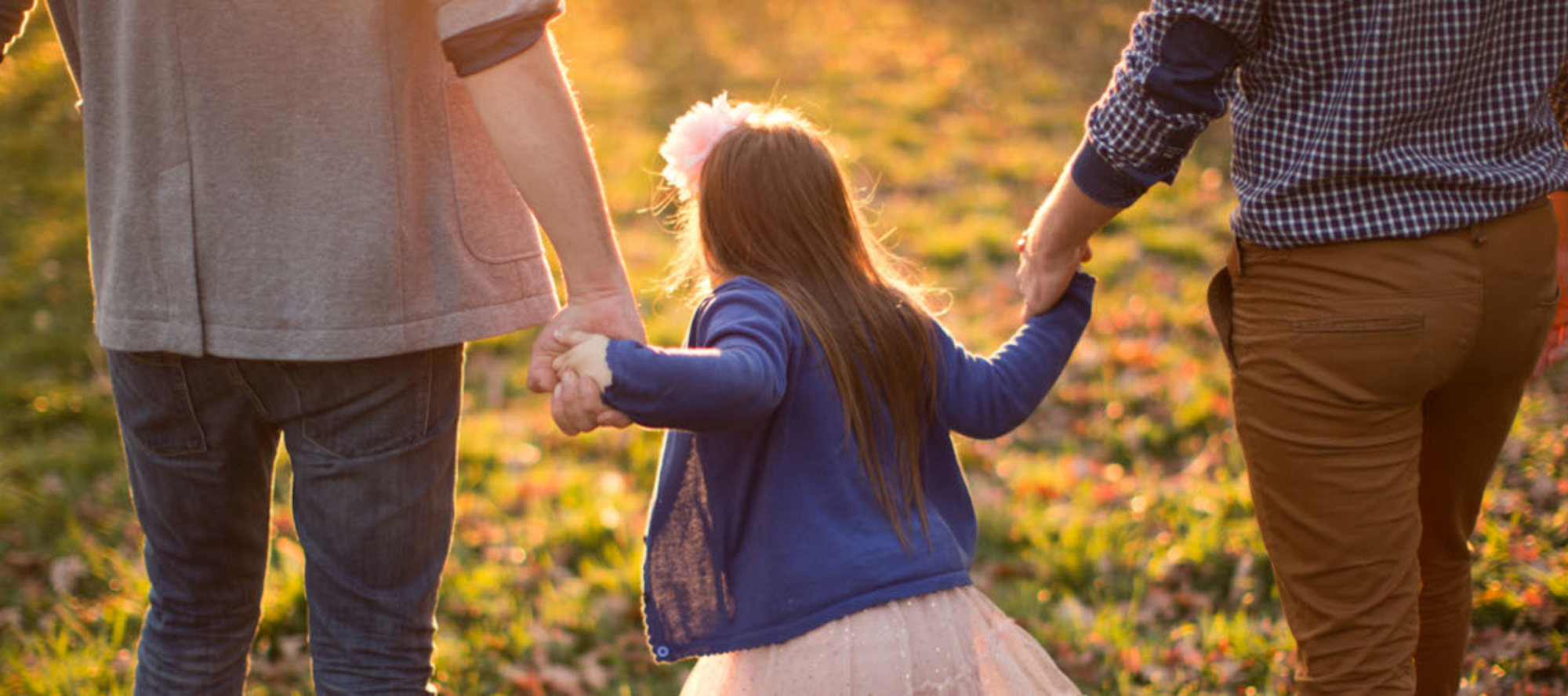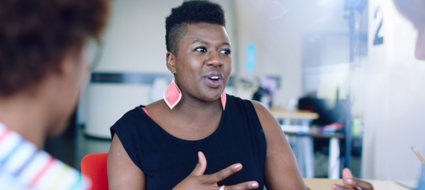As a social structure, the family occupies a unique place in our society. It is a private social institution subjected to a lot of public and political influence.
While Article 8 of the Human Rights Act 1988 says we all have a right to a private and family life, as social workers, you will know that this is a qualified right. This means a public authority can sometimes interfere with this right to respect for private and family life if it is in the interest of the wider community or to protect other people's rights. Importantly, ‘family’ is a social construction – it changes over time – reflected in changes to the law. However, lived experience shows that societal discourses about families remain entrenched within a heteronormative and cisgendered framework. As a result, there is a danger that the diversity of how lesbians, gay men, trans and non-binary people create 'family' and family structures is not valued.
LGBTQ+ lived experience of heteronormative assumptions
There are two differences between LGBTQ+ and heterosexual families experiences of society that mark the experience of LGBTQ+ families as different.
Firstly , we all live within a heteronormative society and this carries with it the constant threat and experience of homophobia for same sex families, and transphobia for trans/non-binary families (Cocker, Hafford-Letchfield, Ryan, & Barran, 2019; Hafford-Letchfield, Cocker, Ryan, & Melonowska, 2016; Hicks & McDermott, 2018). This is not something that heterosexual families experience. Since this is (unfortunately) an altogether common experience for LGBTQ+ people, we are often adept at negotiating those spaces (Cocker & Brown, 2010; Cocker et al., 2019). Secondly, how children come to be in lesbian and gay families frequently differs from heterosexual families. There is an assumption that the children of heterosexual parents are birth children. This is not the same for children of lesbian and gay parents, even when they are birth children. A further assumption in most school environments is that all children are being raised within heterosexual families. This means that same sex families are constantly ‘coming out’ within school and other public service settings. This is a recurring situation lesbian and gay parents face each year with every new class teacher and at the school gates with other parents. They are required to continuously manage the heteronormative interface between private and public spaces within the home and community for their children (Cocker & Brown, 2010). This similarly applies to trans/non-binary parents and their children (Hafford-Letchfield et al., 2019).
Supervision – what works?
So what does this mean for you as supervisors and managers?
Not making assumptions about what LGBTQ+ families are and are not, is a good place to start with yourself and with the members of staff that you supervise. Like a lot of prejudice and discrimination, many damaging tropes and misinformation are built on stereotypes that are not true. You may supervise people who have religious views that teach them that homosexuality is wrong, or that it is a ‘white disease’. Supervision in these situations uses the same skills and the same underpinning ethical values and beliefs about the dignity and worth of every person. Nothing about what we believe to be good practice is different here. However, it may well mean that there are times where you feel uncomfortable, particularly if this is new to you. Maybe you’ve never thought about ‘coming out’ as more than just a one-time event. It is a constant process. Maybe that is new to you. Maybe you couldn’t imagine what it must be like to continually have wrong assumptions made about your family, or for your family to be negatively judged.
Remember, LGBTQ+ families are used to this. It doesn’t make it right, but we have developed ways of dealing with people’s curiosity and on some occasions, their prejudice. Have those conversations with your staff, find people to talk to about any aspect of practice that you have questions about – there will be people in your organisation you can approach if you feel completely out of your depth. Insist this topic is on the agenda in your team meetings and if prejudicial views are expressed, deal with them as you would any other situation where a member of staff is racist or sexist.
Please also remember that LGBTQ+ people are not perfect. There are occasions where abuse does occur in their families too. Do not fall into the situation of not wanting to be seen as homophobic; remember the Wakefield case with two gay male foster carers. Remember the recent adoption case in Wales where an adopted child was killed by one of her fathers. Remember Star Hobson’s parents. Remaining curious and respectful is always important. You have access to fabulous supervision resources from the PSDP that work for supporting good social work practice with LGBTQ+ young people and families.
In addition to addressing your own biases, your role as a supervisor is to provide this support and challenge to those you supervise. This means having ‘courageous conversations’. Prepare for those conversations. Despite all the changes in the legal position for LGBTQ+ parents in the United Kingdom, homophobia, transphobia and heterosexism still exist.
Social work is not immune from these biases, so model the very best of practice for your supervisees.
Be open to learning and open to having your own practice challenged.
There is a considerable history within the UK of unequal treatment of LGBTQ+ families in law. For example, in the 1970s it was commonplace to award custody of children in divorce cases to fathers, where mothers were lesbian, whereas for almost all other hearings involving heterosexual parents, custody was awarded to the mother (Hanscombe & Forster, 1982; Richardson, 1981; Rights of Women Lesbian Custody Group, 1986). In 1988 the UK government passed legislation that forbade schools from promoting homosexuality, describing it as ‘a pretended family relationship’ (Section 28 of the Local Government Act England & Wales, 1988). Can you imagine having your family described in this manner? Section 28 had an impact on lesbian and gay families through the 1990s; in this environment, lesbians and gay men choosing to create families made personal decisions that had political implications. Section 28 remained law until 2003, when it was removed from statute books.
Since this time there have been a significant number of positive changes to the law, including: the age of consent; marriage and civil partnerships; lesbians and gay men in partnerships jointly adopting children; non-biological same sex parents being entered on the birth certificate of their child; and for there to be equality when providing goods, facilities and services to the public, prohibiting discrimination on the grounds of sexual orientation. This does not mean that homophobia and heterosexism do not exist within our society – they do.
In considering the social work profession’s broader commitment to equality and diversity issues, how social work research and practice has addressed working with LGBTQ+ families is important; this area of social work practice and research is still marginalised.
It wasn't until the 1980s that social science researchers began investigating the outcomes for children who were raised by lesbian parents, in response to the custody issues in the Family Courts.
Susan Golombok and colleagues compared the psychological, sexual, educational and social outcomes of children raised by lesbians, compared with children raised by single heterosexual mothers (Golombok, 2000; Golombok et al., 2003; Golombok, Spencer, & Rutter, 1983; Golombok & Tasker, 1996). This was important in showing that the children of lesbians were just as likely as children growing up in heterosexual families to have good mental health, to have positive relationships with peers and to have good relationships with both male and female adults.
The research literature about gay men’s parenting and outcomes for their children began 10–15 years later. The results are broadly similar to lesbian mothers, with children raised by gay men exhibiting no more psychological differences than their heterosexual counterparts. Indeed, some studies suggest that children of gay fathers may have better outcomes than those of heterosexual parents in some psychological domains; less gender-stereotyped and less internalizing and externalizing behaviours (Goldberg, 2010; Golombok et al., 2014; Miller, Kors, & Macfie, 2017). Whilst both lesbians and gay men defy traditional gender roles, gay men have experienced different types of homophobia to lesbians in their bid to become parents, particularly around ‘paedophile’ narratives observed in many political discourses associated with legal changes (see Hansard transcripts from debates in the Houses of Parliament in the UK around lowering the age of consent for gay men to 16 in 2003 and debates around adoption law reform in 2002). Negative stereotyping in relation to HIV has also affected gay men who are HIV-positive when thinking about their options for becoming parents, as well as the advice they receive about parenting (Barber et al., 2019).
Moving on to trans and non-binary people’s (TNB) experience of parenting, a systematic literature review I undertook with colleagues (T Hafford-Letchfield et al., 2019) found that whilst lesbian and gay families are viewed as having pioneered ‘new family forms’, there is evidence from the literature to show that TNB experiences of parenting are distinct from wider lesbian, gay and bisexual (LGB) experiences. Our (2019) findings showed that trans people are as invested and committed to their families as any other persons, but there is a fear about how being trans might affect family relationships, particularly if coming out as trans after becoming a parent. There are differences between trans-women and trans-men’s journey to parenting: trans-women are more likely to become parents before their gender transition at younger ages and with lower socioeconomic status. Trans-men and gender non-binary people are more likely to become parents after gender transition (Tornello, Riskind, & Babić, 2019).
Finally, for bisexual people, engaging in relationships that acknowledge people’s bisexuality and sexual identity challenges societal expectations of sexual attraction, partnerships and family-making, with people feeling that they do not belong in either a lesbian/gay or heterosexual world (Tasker & Delvoye, 2018). This unhelpful positioning ignores the potential for creating family forms that are not based solely on biology in family relationships but can also include family members who are there from choice (Tasker and Delvoye, 2018).



